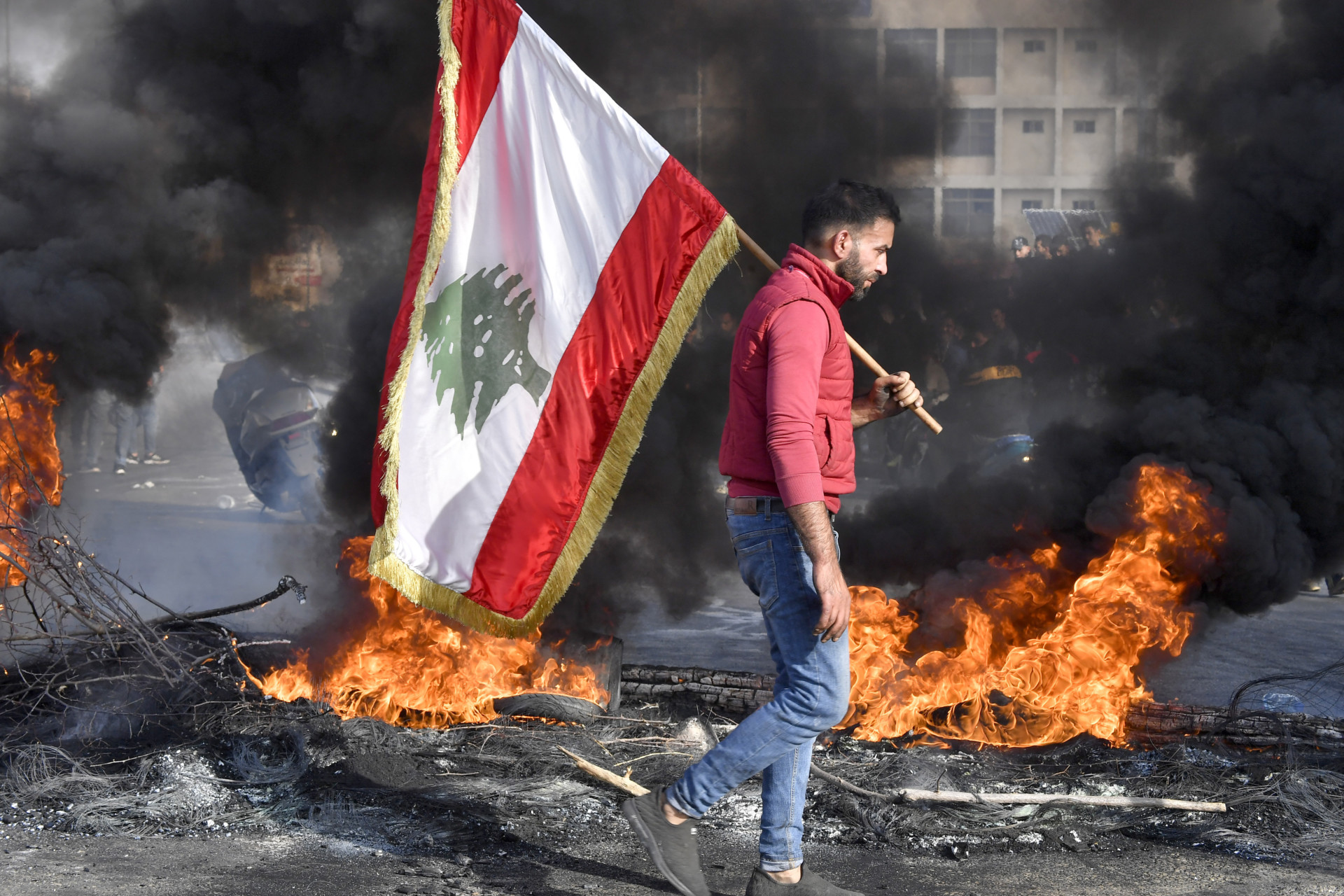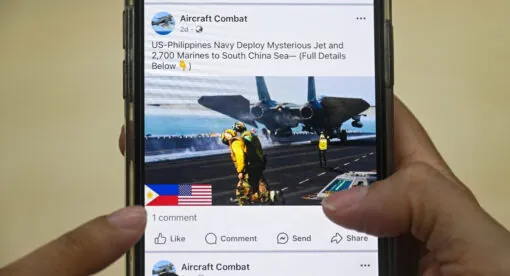Security forces will need to do more to manage complex challenges in the coming years, but they will have less with which to do their jobs.
For the past two years, Lebanese security forces have been struggling to manage compounding crises in their country. They have repeatedly stood between Lebanese leaders, factions, militias, criminals, and people while straining to manage different responsibilities: longstanding obligations expected of any military, postwar domestic security concerns, and/or the acute and sudden strains of the current crises. As the state decays and society frays in 2022 and beyond, Lebanese security forces will struggle to meet their mandates, maintain response capacity and operations, and preserve — let alone keep developing — the personal pride, unit morale, overall discipline, institutional integrity, and public trust they will need in the long run.
To help maintain stability in the Levant, U.S. officials may increase support for and improve cooperation with Lebanese security forces: the Lebanese Armed Forces (LAF), Internal Security Forces (ISF), and others. In addition to being primarily responsible for maintaining stability and managing complex challenges in Lebanon, the LAF and ISF are — and will be — important security partners of the United States, which has long-range interests in preserving their institutional integrity, improving overall practice, and cooperating with them in the Levant.
Lebanon Will Get Worse Regardless of Whether It Gets Better
After decades of war, occupation, and factional feuding, the Lebanese began suffering through compounding crises in 2019: fiscal, monetary, financial, and economic. Indeed, they have been “sinking” through one of the worst collapses in the world since the 1800s. As Lebanon’s GDP crashed from $55 billion to $33 billion in two years, GDP per capita plunged by about 40 percent in dollar terms. In that time, more than 500,000 Lebanese have lost their jobs or businesses. At least 40 percent of Lebanese are unemployed. Millions of people have lost their savings, salaries, and benefits. About 80 percent of Lebanese are now living in poverty. About 90 percent of the Syrians and Palestinians living in Lebanon need additional assistance to cope with these crises, senior U.N. representatives based in Beirut told New Lines. And hundreds of thousands of migrants from Asia and Africa, already living in egregious conditions, have suffered even more.
Already affecting the Lebanese adversely, these compounding crises are a prelude to a true catastrophe. Even with the most visionary leaders operating under the most favorable conditions, the Lebanese would need months to head in the right direction, years to restore the republic, and a decade to promote positive, meaningful, and sustainable change. As they have demonstrated repeatedly, for instance by taking 13 months to create a cabinet, Lebanese leaders will likely fail to resolve political deadlock, address an economic collapse, reverse the state’s decay, help address sectoral struggles, or allow others to help themselves effectively.
In turn, people in Lebanon will increasingly experience what one former adviser to a Lebanese premier described to New Lines as “seasonal chaos.” They will struggle through — and contribute to — social unrest, factional clashes, political violence, crime, and more. In turn, the state and society will strain further due to a proliferation and aggregation of these “isolated incidents of different intensity,” regardless of any escalation. Moreover, Lebanese leaders will continue to practice politics as war by other means. They will continue to feud and clash across Lebanon. Often directing, encouraging, or creating conditions for armed violence, as they have done repeatedly in 2020 and 2021, they will selectively uphold and undermine order while contributing to the very crises they have already created.
Security Forces Will Struggle to Meet Mandates
Security forces have been struggling to manage the consequences of these crises. Grappling with “outsized domestic security concerns” for decades, the LAF has included internal stability as an important part of its mandate in the postwar period. Even by that standard, though, LAF officers and soldiers have had to increase, intensify, and take on too many new operations recently. They have prevented, mitigated, and contained factional feuds within and across different segments of society. Soldiers have also helped secure critical infrastructure and patrolled disaster zones, with conflicting guidance, orders, and interference from civilian leaders and factional bosses. They have improved border management, counter-smuggling, and counter-terrorism practices. They have responded to the COVID-19 pandemic, secured private businesses, distributed subsidized goods, and deployed to points of service across the country. And, at times, the LAF has led crisis-response planning as special councils, civilian ministries, and interagency cells have failed to do their jobs effectively (or at all).
Doing more, the LAF and ISF have made do with less. Their budgets are inadequate, with Lebanese officers and non-Lebanese counterparts assessing that the gap between requirements and allocations will grow. Due to a combination of poor practice by civilian leaders, inherited structures from the occupation era, ongoing crises, and their own institutional missteps in the postwar period, the forces have misallocated available resources. Moreover, LAF and ISF personnel — about 130,000 people, with the LAF accounting for perhaps 80,000 of them — earn income and receive benefits in liras. As the currency has repeatedly slid and collapsed, they have struggled to provide and care for their own families while clashing with citizens who’ve taken to the streets because of common concerns. Soldiers have gone from earning the equivalent of $700-$1,000 per month in mid-2019 to less than $50 per month for much of 2021. Senior officers and even generals may now make the equivalent of a few hundred dollars per month, with money and benefits made, saved, or earned before the crisis now less valuable and less accessible than apparent on paper.
Civilian officials and security officers have assessed that the LAF and ISF can’t meet their increasing — and increasingly complex — obligations with fewer resources, while also assessing that these challenges will make it difficult for the forces to preserve long-term institutional integrity. As crises have continued, leaders have gone from sharing their concerns in a measured manner to warning openly about the decaying state and fraying society. In March, the LAF commander blasted Lebanese leaders for doing nothing to prevent a LAF “implosion.” After that, Lebanon’s then-caretaker interior minister warned that security forces were already struggling to complete “90 percent of [their] tasks.” By summer 2021, officers were indicating privately that the LAF alone needed an immediate injection of $100 million to continue operating and that the LAF, ISF, and others could “disintegrate” without significant support over time.
All the while, soldiers and others have deserted, taken administrative or educational leave without intending to return, or taken on side jobs — be it in agriculture and resale, or in different enterprises of varying legality and sensibility.
Having long since begun engaging in day-to-day policing in a complex sociopolitical context, the LAF risks losing its luster — or, as different Lebanese told New Lines, its “aura” of authority or “halo effect.” Increasingly falling to fighting with citizens, soldiers may also fail to stop others from clashing and will increasingly work to police people who are suffering severely.
Despite being one of the most capable and trusted state institutions in Lebanon, its officers and soldiers have been suffering personally and struggling professionally for two years. “Children of their society and environment,” officers, soldiers, and police are personally responsible for the livelihoods of hundreds of thousands of dependents and professionally responsible for the baseline security and safety of most people in Lebanon. As a Lebanese general told New Lines, they “cannot [meet] these responsibilities for preserving public security and safety in such a dire situation, which is worsening.”
Meanwhile, LAF leaders have been addressing the crisis by doing what they deem necessary and useful now even if it could be counterproductive over time. Since mid-2021, the LAF has basically been rationing operations — and, indeed, security — in Lebanon. To ease strains on personnel, LAF leaders have been cutting functions while adopting different formal initiatives in transportation, basing, services, and the like. And for months, leaders have been informally tolerating flexible service as a way to “limit desertions and maintain operations.” While they have thus held the LAF together, generals and other senior officers have not been able to prevent desertions (be they declared or not). About 2,000 LAF personnel have still left in declared desertions since 2019. Others have left without declaring desertions, which the LAF in turn has not reported, using a range of informal options.
Security forces will need to do more to manage complex challenges in the coming years, but they will have less with which to do their jobs. They need help. And, above all, they need money.
Recommendations
Concerned about these crises, U.S., European, and Arab officials have been trying to reconcile competing strategic, political, and moral interests in Lebanon. None of them see Lebanon as their priority, nor do they see Lebanon’s crises as more important or urgent than others in the Middle East or globally. They also have concerns about Lebanese leaders’ brinksmanship and gamesmanship; the state’s political positions; endemic problems in purportedly public institutions and private enterprises; and the power, influence, and status of Hezbollah.
Against that backdrop, U.S. and other officials have neither bailed out the Lebanese nor released already promised assistance. They have provided or greenlighted some humanitarian, disaster-recovery, small-scale rehabilitation, and pandemic-related aid, but while painting these crises as manifest and their consequences as dire, they have yet to anticipate or rapidly respond to ever-evolving conditions. Indeed, even in the security sector, they have reacted disjointedly, offered up piecemeal packages, and cobbled together disparate half-measures that are not designed for urgent needs.
Nevertheless, U.S., European, and Arab officials have a clear, common, and immediate interest in avoiding another catastrophe in the Levant, or at least in helping people cope with its consequences. They have a general interest in doing so, given the different destabilization risks and longer-term problems of letting Lebanon collapse, as well as specific interests in helping to manage all such risks and challenges while they re-engage and realign in the region.
U.S. leaders may increase support for and improve cooperation with Lebanese security forces, particularly by providing funding. Given different considerations, U.S. lawmakers and officials may work together to adopt special measures for limited periods: express legislative language in coming appropriations bills, national defense authorization acts, or other laws to provide for salaries or stipends of LAF and ISF personnel.
In the meantime, or if they are unable to adopt special measures in the 2021 and 2022 funding cycles, U.S. leaders could provide or authorize such funding through overseas contingency, discretionary, sustainment, or other available monies (with specific mechanisms depending, in turn, on broader and deeper deliberations between legislative advisers and executive officials regarding different kinds of funds available to the U.S. government). And, of course, they may continue to creatively use other types of assistance, including drawdown, reimbursement, and other forms used to help the LAF in the past year.
For now, U.S. and other officials cannot do more than help manage compounding crises while tending to their respective political, humanitarian, and strategic interests. They may increase humanitarian assistance or improve disbursement practices and monitoring mechanisms to reduce different forms of direct pilfering, waste, and redirection of monies (though remaining realistic more broadly). Building upon small-scale initiatives already underway, U.S. officials may lead unilateral, multilateral, and international institutional efforts to preserve different critical capacities of the Lebanese state and different enterprises, organizations, and indeed individuals in society. Beyond that, U.S. leaders must withhold more significant assistance until Lebanese leaders change their behavior or the Lebanese people change their leaders.
Anthony Elghossain is a lawyer, writer, and contributing editor at New Lines Magazine. His book, “They Came in Peace,” is due out in 2022. He tweets at @ aelghossain.
The views expressed in this article are those of the author and not reflective of an official policy or position of the New Lines Institute.






